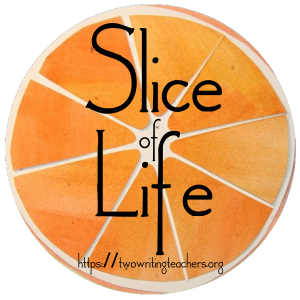Know Better, Do Better
My formal teaching career launched eighteen years ago as a language arts teacher in an urban middle school. Like most first year teachers, I struggled with almost everything - classroom management, developing units, teaching grammar and spelling, and how to assess writing. I quickly realized that having my own class was really not the same as my student teaching. I was a secondary English Education major, but I often found myself lost. I didn’t know how to help my students who refused to read. I didn’t know how to effectively teach young writers. I didn't know what to do when students wouldn't participate. I didn't now how to give fair grades to students. Yet, I pretended that I was just fine - that I knew everything I needed to be an effective teacher. There was no way that I would admit to Mrs. Wiegand, my principal, that I needed help and had a lot more to learn. I wasn’t vulnerable enough with my colleagues to ask for help either. And there was no way that I could reveal to my eighth grade students that I didn’t know something or had to search to find an answer.
I believed that I could never show weakness or appear that I did not know something. I was terrified that someone might think that I wasn’t a good teacher or didn’t belong in the classroom.
Fortunately, I don’t feel that way anymore.
A few years ago I attended a conference called Comprehension X3 in Madison, WI and I heard someone ask author and staff developer Cris Tovani about how she assessed student writing and reading using standards in her grading. Her response was something like, “I’m not there yet. I am still trying to figure that out.” I was blown away at how vulnerable she was in sharing this statement in front of a large group. I even wrote down the question and her response in my notes with an exclamation point. In a breakout session later on, Cris also shared who influenced her thinking and the titles she was reading to learn more about standards based grading. I'm sure it wasn't a big deal to Cris, but it showed me that it was okay to admit when you don't know an answer. By this time I was learning more and more about being an effective teacher (and changing my instructional practices), but I realized that I wasn't sharing this with my students or colleagues.
Recently, one of mantras has been this phrase: know better, do better. I am a completely different teacher than I was eighteen years ago. Now I read more professional resources, attend literacy conferences, and am involved in our Wisconsin State Reading Association. I take the time to reflect in my writing as a teacher and learner. Unlike my first few years of teaching, I am not afraid to ask questions, even if I know it exposes exactly what I do not know. Perhaps, and most importantly, I am a better listener to my students and understand how much they can teach me about their learning.
Recently, one of mantras has been this phrase: know better, do better. I am a completely different teacher than I was eighteen years ago. Now I read more professional resources, attend literacy conferences, and am involved in our Wisconsin State Reading Association. I take the time to reflect in my writing as a teacher and learner. Unlike my first few years of teaching, I am not afraid to ask questions, even if I know it exposes exactly what I do not know. Perhaps, and most importantly, I am a better listener to my students and understand how much they can teach me about their learning.
These are the areas that I am most interested in as a learner right now:
- How to teach reading more effectively to high school readers
- How to give and get better feedback from my students
- How to plan my instructional units better, including using learning targets better and what author and staff developer Samantha Bennett calls an effective "make"
- How to empower student voice through writing
Last year a classmate in my daughter’s third grade class made this poster:
| This poster was created by one of my daughter's classmates and proudly displayed in the classroom. |
I couldn't love this more. I hope to show my students more of my mistakes this year so they can see that I am learning. I want them to see that sometimes I struggle in what I am doing (and don't know all the answers), but I seek out information when I don't know the answer.
I want to create this kind of culture in my high school classroom, one that values mistakes. One that shows that we are all seeking knowledge. A culture that honors that we are all learners, even the teacher.
Know better, do better.
I want to create this kind of culture in my high school classroom, one that values mistakes. One that shows that we are all seeking knowledge. A culture that honors that we are all learners, even the teacher.
Know better, do better.



No comments:
Post a Comment